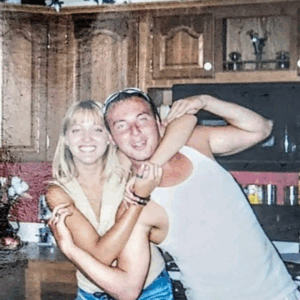Phyllis, affectionately known as “Philly” by those closest to her, never quite felt like she belonged. Adopted into a loving family, she began drinking by the age of 14 to quiet her restless mind. What started as sneaking out and drinking quickly spiraled into decades of chaos.
Her life became a blur of jail time, broken relationships, and destructive choices. She had children, married and divorced three times, and burned bridges she could hardly remember building.
“I didn’t have a life,” she said, her voice trembling with memory.
Her turning point wasn’t a dramatic moment of clarity—it was quiet surrender. In March 2006, after a failed attempt at short-term detox, a cab driver trying to keep her safe brought her to Healing Transitions.
At the time, the program was still new and nearly empty. “There were only 23 women there,” she recalled. “But they opened the door.”
That door became a gateway to something Phyllis never expected: healing—not just abstinence, which she had once believed was the goal—but spiritual, emotional, and communal recovery.
“Recovery isn’t just not using,” she said. “It’s spiritual in nature. If you miss that part, you miss the whole thing.”
The journey was far from linear. It took Phyllis nine years to earn her “Silver Chip,” the recognition of completing Healing Transitions’ long-term recovery program. Her number—159—holds deep personal meaning and stands as a testament to the perseverance it took to get there.
“One second at a time that year,” she added, smiling through the pain.
Tragedy marked her path. Just one week after receiving her Silver Chip, her son Michael—who had also gone through Healing Transitions—passed away. The grief was unimaginable. His funeral was held in the men’s community room, the very space where their shared healing had taken root.
Still, she stayed sober.
She credits people like Chris Budnick, Allison B, and Chef Kathy—mentors and pillars of support—for offering her grace when she needed it most.
“I still call them by their titles,” Phyllis said. “They gave me something I didn’t know I needed: accountability, love, and truth.”
Even after all these years, Phyllis still refers to Healing Transitions as “The Healing Place.” It’s where she found herself—and where she’s always welcomed back.
“It’s the only place I knew to go where I was loved unconditionally.”
 Today, at 61, her purpose is being a present mother to her Daughter Kristina and a proud Nonni of six, who she refers to as her “littles.”
Today, at 61, her purpose is being a present mother to her Daughter Kristina and a proud Nonni of six, who she refers to as her “littles.”
One of her granddaughters is named Gracelynn Michael—a tribute to the son she lost. “One day she’ll ask where she got her middle name,” Phyllis said. “And I’ll get to tell her all about her uncle.”
While she no longer attends meetings regularly, she stays connected to her sponsor, helps others in need, and remains active in the recovery community.
“I’m not the one running the roads to meetings or to get high,” she says. “But I will run the roads to take you to detox.”
Her message to those considering recovery is simple and powerful:
“Go. Stay. Let us help you. Then give back.”
It’s the path that saved her life—and gave her time to heal with her son before he passed.
Today, Phyllis is still healing. Still loving hard. Still showing up—for others, and for herself.
